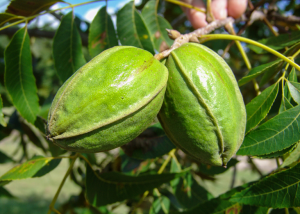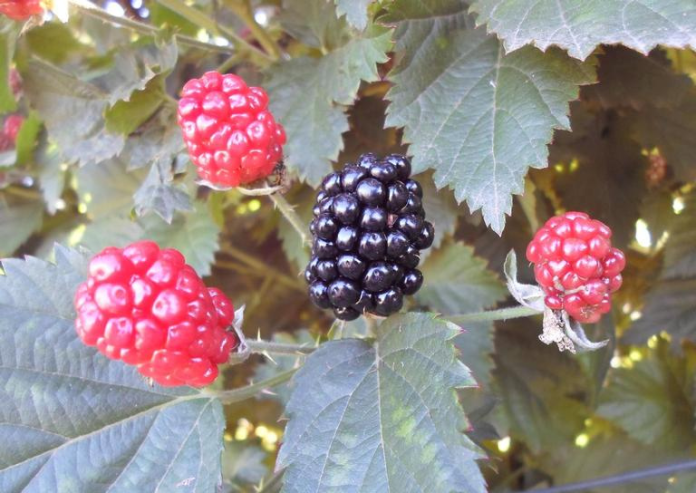By Kathi Fast & Kathryn Wells
Some of the more successful large-fruit crops for our eco-region include figs, peaches, plums, and pomegranates. Blackberries and grapes are two of the easiest small-fruit crops to grow here. For nut crops, go with pecan, our Texas state tree.
Fruit and nut trees should be currently available at area nurseries and will be in one of three forms: bare-rooted (no soil, usually packed in moist peat moss), balled and burlapped (ball of soil around roots), or container-grown (soil and roots in a nursery pot). When purchasing a container-grown tree, check to ensure the roots are not girdled (tightly circling the trunk or other primary roots) in the nursery pot.
Some fruit and nut cultivars are self-fruiting; others require cross-pollination. Everything you need to know about the best varieties for our area can be found on the Texas A&M AgriLife Extension Service website at https://aggie-horticulture.tamu.edu/fruit-nut.
Planting for success

Fruit and nut trees need at least six hours of sun, so choose a sunny spot with good drainage. The best practice is to select varieties that thrive in native soil.
A common planting mistake is to dig the hole too deep; a good rule of thumb is to dig the hole twice as wide as the root ball, but at an equal depth, so the root flare (where the primary roots meet the trunk) is not smothered, and the root system has space to stretch and grow. If you’re planting a container-grown tree, gently separate the roots and remove any excess soil covering the top of the root ball. Backfill the hole with native soil and water well. Continue to water regularly as the new planting establishes itself in the new location. A handy tree-planting guide is available on the Texas A&M AgriLife Extension website at https://aggie-horticulture.tamu.edu/earthkind/landscape/planting-a-tree.
If you’re adding several new plantings, north-to-south rows allow for the best air movement and light exposure. Place larger trees in the northernmost position to prevent shading of the smaller crops. Keep the soil surface free of weeds and grass in a circumference area at least as wide as the tree canopy (width of limb spread). Mulching helps retain moisture and repress weeds, but be sure to leave the trunk and its root flare exposed.
For more information about gardening in North Texas see dcmga.com/north-texas-gardening/.
Happy Gardening!











.jpg)





